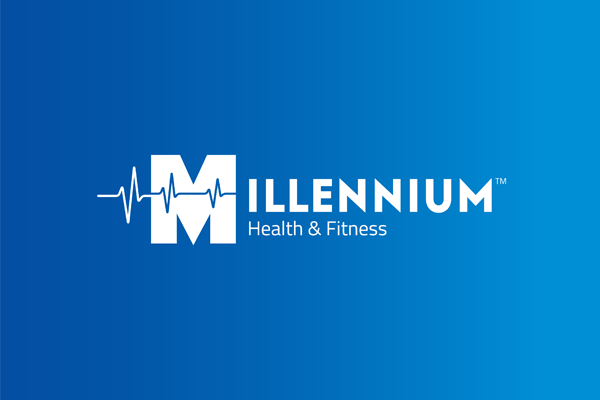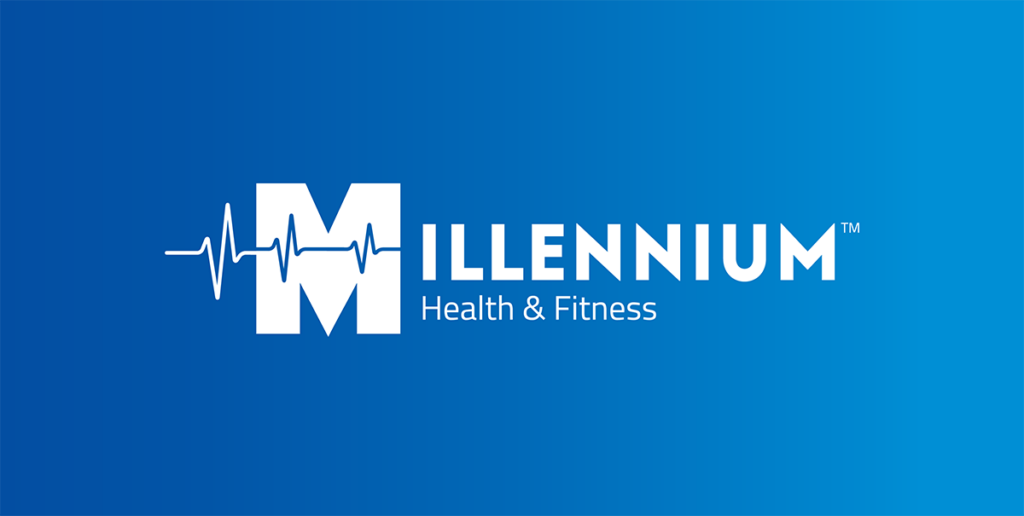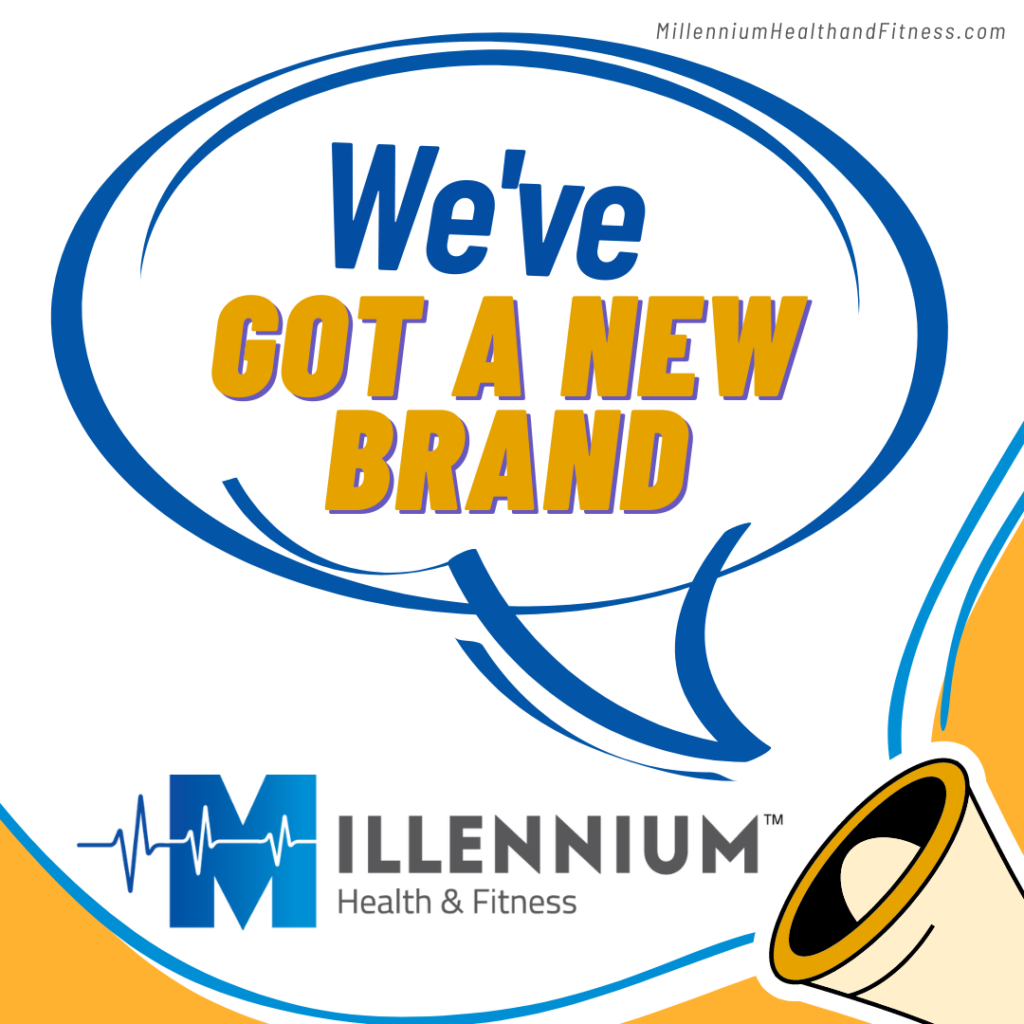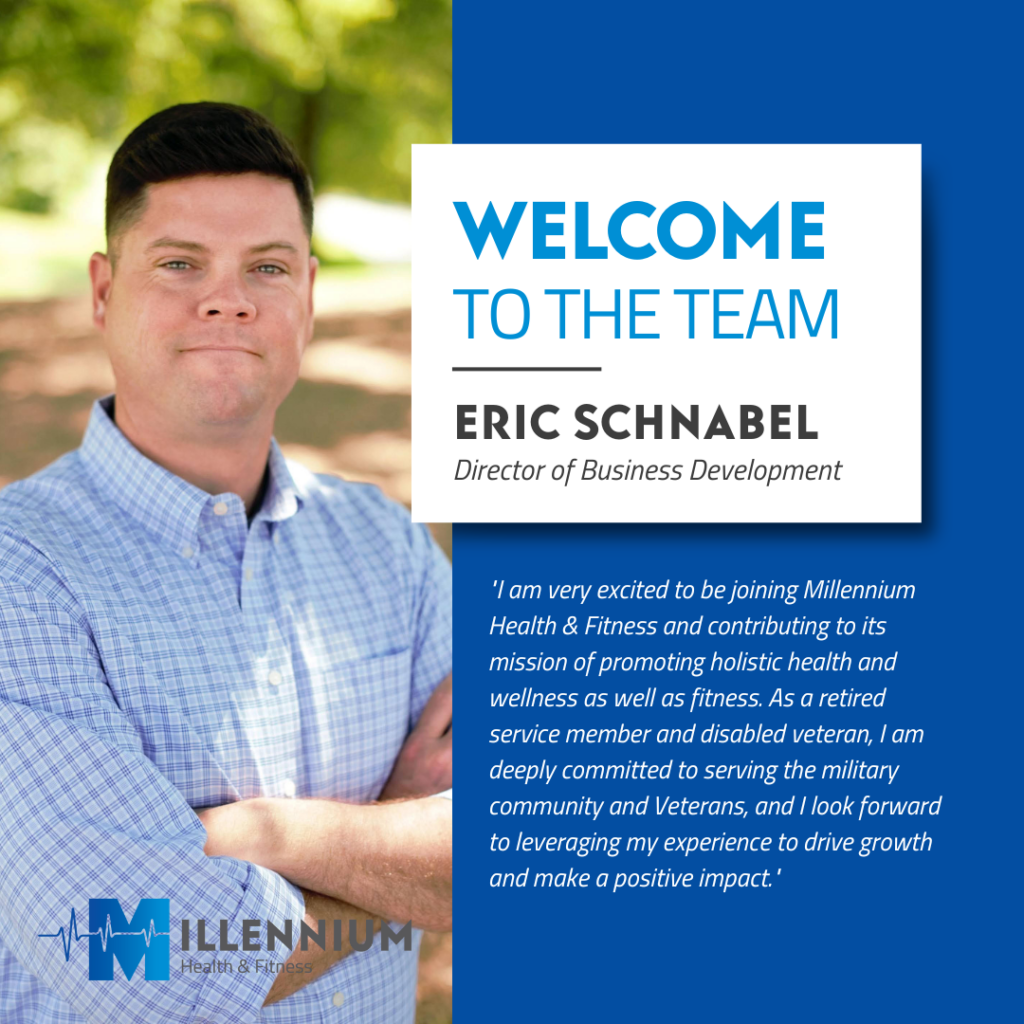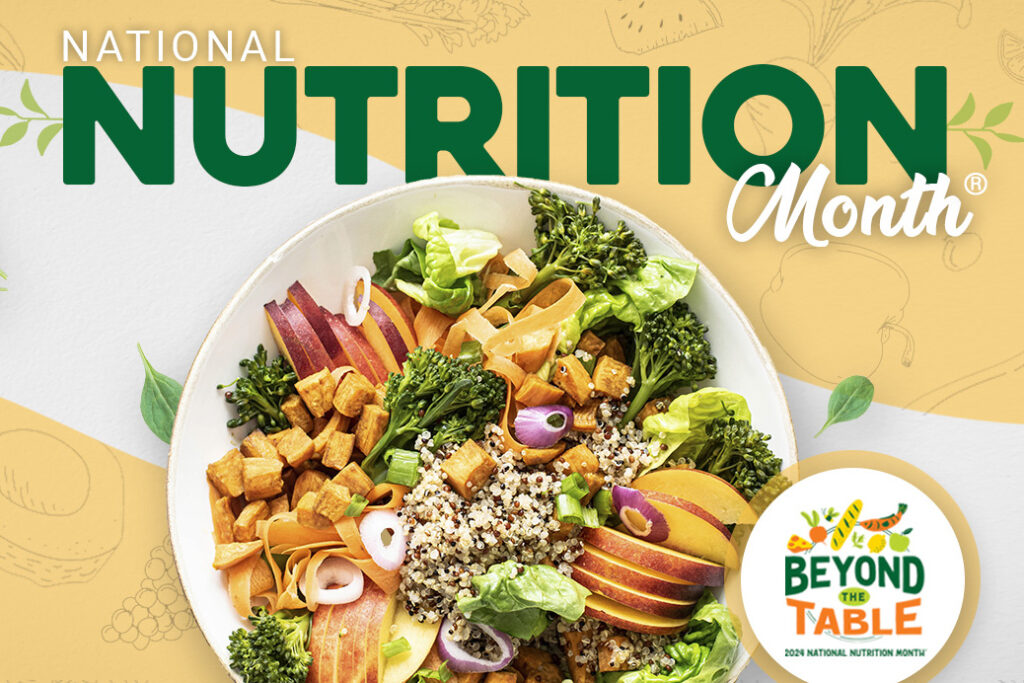
by Sierra Rankin, MS, Millennium Associate Operations Manager
National Nutrition Month, sponsored annually by the Academy of Nutrition and Dietetics, serves as a dedicated nutrition education and information campaign. This initiative aims to spotlight the significance of making informed food choices and cultivating healthy eating and physical activity habits.
Maintaining a well-balanced diet plays a crucial role in supplying the necessary calories and nutrients required to support your daily activities, including regular exercise.
However, when it comes to nourishing your body for optimal exercise performance, the process is more nuanced than merely opting for vegetables over doughnuts. It involves consuming the right types of food at specific times throughout the day.
Begin on a Positive Note
The initial meal of your day holds significant importance. Regularly consuming breakfast has been associated with a reduced risk of obesity, diabetes, and heart disease. Commencing your day with a nutritious meal, aids in replenishing your blood sugar levels, providing the essential fuel for your muscles and brain.
This importance is amplified on days when exercise is part of your routine. Skipping breakfast can result in feelings of light-headedness or lethargy during your workout. The selection of the right break-fast is crucial, as relying on simple carbohydrates, such as a plain white bagel or doughnut, may not sustain feelings of fullness for long.
In contrast, opting for a breakfast rich in fiber and protein can stave off hunger for a more extended period and offer the necessary energy to support your physical activity.
Load Up on Protein in Your Snacks and Meals
Protein is essential for sustaining the growth, maintenance, and repair of your body. It plays a crucial role in building and repairing muscles, contributing to the positive outcomes of your workout. While it can serve as an energy source when carbohydrates are scarce, it is not a primary fuel during exercise.
According to the Harvard Health Blog, adults should aim to consume approximately 0.8 grams of protein per day for every kilogram of their body weight, equivalent to about 0.36 grams of protein per pound. Individuals engaged in regular exercise and older adults may have increased protein needs.
For optimal health, prioritize lean protein sources that are low in saturated and trans fats. Restricting the intake of red meat and processed meats is advisable for a well-rounded and balanced diet.
Increase Your Consumption of Fruits and Vegetables
Fruits and vegetables serve as abundant sources of natural fiber, vitamins, minerals, and essential compounds vital for proper bodily function. Additionally, they are low in calories and fat.
The United States Department of Agriculture recommends filling half your plate with fruits and vegetables during each meal.
To maximize nutritional benefits, strive to “eat the rainbow” by incorporating fruits and vegetables of various colors. This diverse selection ensures access to a wide range of vitamins, minerals, and antioxidants available in the produce aisle.
Make a habit of exploring new fruits or vegetables during each grocery store visit. For convenient and healthy snacks, keep dried fruits in your workout bag and raw vegetables in the fridge.
Prioritize Pre-exercise Fueling for Best Performance
Achieving the right balance of carbs and protein is crucial when fueling up before or after a workout. Opt for pre-workout snacks that blend carbohydrates with protein, as they can pro-vide a more energizing effect com-pared to junk foods containing simple sugars and high fat content.
Avoiding Cutting Too Many Calories
If your goal is weight loss or body toning, the temptation to drastically cut calories may arise. While reducing calories is a key aspect of weight loss, it’s essential not to go to extremes.
A weight loss plan should not leave you feeling fatigued or unwell. Experiencing exhaustion or illness is an indication that you might not be consuming enough calories to support good health and fitness.
For most women aiming to lose weight safely, a diet of 1,200 to 1,500 daily calories is appropriate, while most men seeking weight loss can consider a diet of 1,500 to 1,800 daily calories.
If you lead a highly active lifestyle or have fitness goals that don’t involve weight loss, you might need more calories. Consulting with your doctor or a dietitian can help determine the right calorie intake to support your individual lifestyle and fitness objectives.
Balance is Key
As you embrace an active lifestyle, you will likely identify foods that provide optimal energy and those that have adverse effects. The crucial element is tuning into your body, finding a balance between what feels right and what is beneficial for you.
Consider these tips:
- Make breakfast a consistent part of your routine.
- Opt for complex carbohydrates, lean protein sources, healthy fats, and a diverse range of fruits and vegetables.
- Ensure your fridge and gym bag are stocked with nutritious workout snacks.
Achieving the right balance of carbohydrates, protein, and other nutrients is essential to fuel your exercise routine effectively.
References:
- Kilroy, D. S. (2019, February 28). Eating the right foods for exercise. Health-line. https://www.healthline.com/health/fitness-exercise-eating-healthy#takeaway</p
- National Nutrition Month. HUD.gov / U.S. Department of Housing and Ur-ban Development (HUD). (n.d.). https://www.hud.gov/program_offices/public_indian_housing/programs/ph/nnw/Nutrition

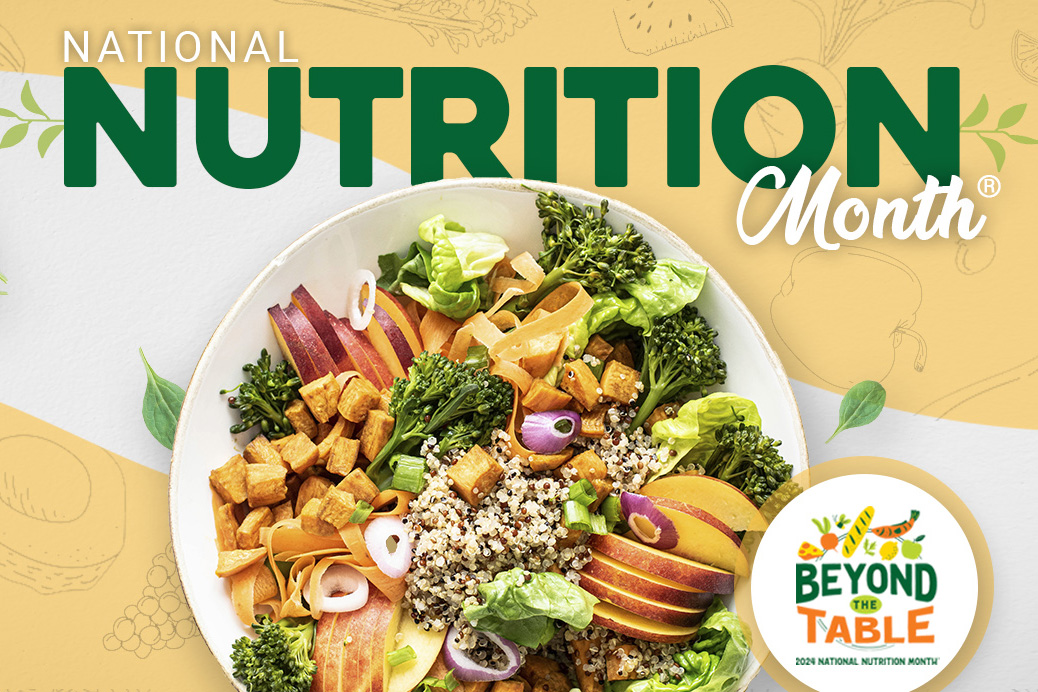
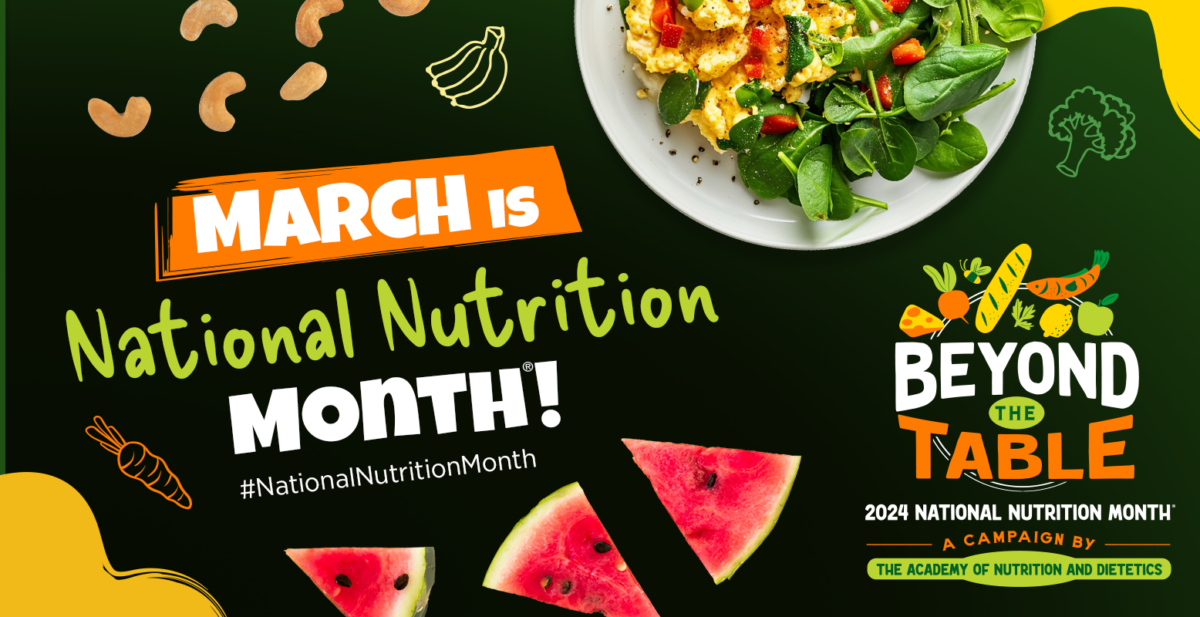
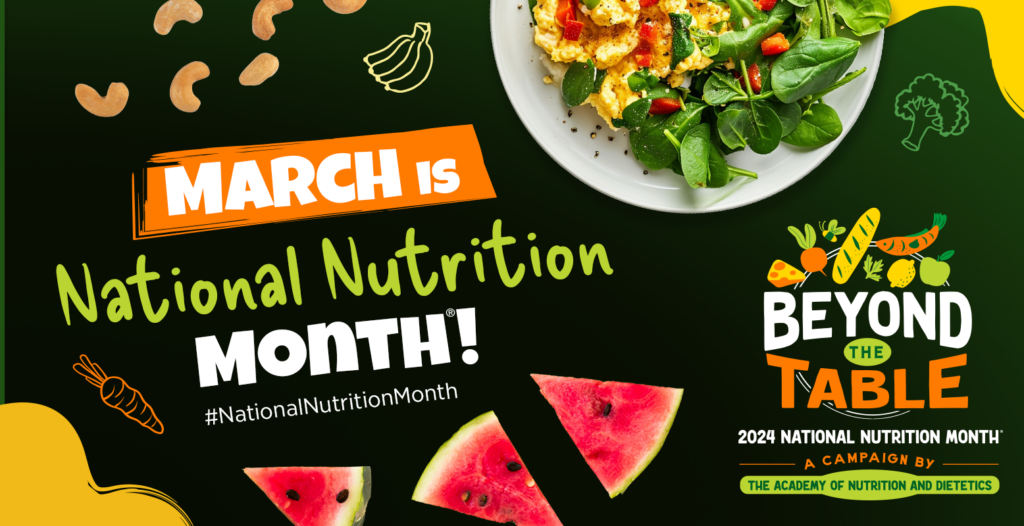 March brings more than just the promise of spring; it’s also the time for National Nutrition Month®, an annual campaign spearheaded by the Academy of Nutrition and Dietetics. This month-long observance, which began as National Nutrition Week in 1973 and expanded to a month in 1980 due to growing interest in nutrition, invites everyone to learn about making informed food choices and developing healthful eating and physical activity habits. The theme for 2024, “Beyond the Table,” invites us to explore the journey of our food from its source to our plates, emphasizing the importance of making informed choices and developing sound eating and physical activity habits.
March brings more than just the promise of spring; it’s also the time for National Nutrition Month®, an annual campaign spearheaded by the Academy of Nutrition and Dietetics. This month-long observance, which began as National Nutrition Week in 1973 and expanded to a month in 1980 due to growing interest in nutrition, invites everyone to learn about making informed food choices and developing healthful eating and physical activity habits. The theme for 2024, “Beyond the Table,” invites us to explore the journey of our food from its source to our plates, emphasizing the importance of making informed choices and developing sound eating and physical activity habits.